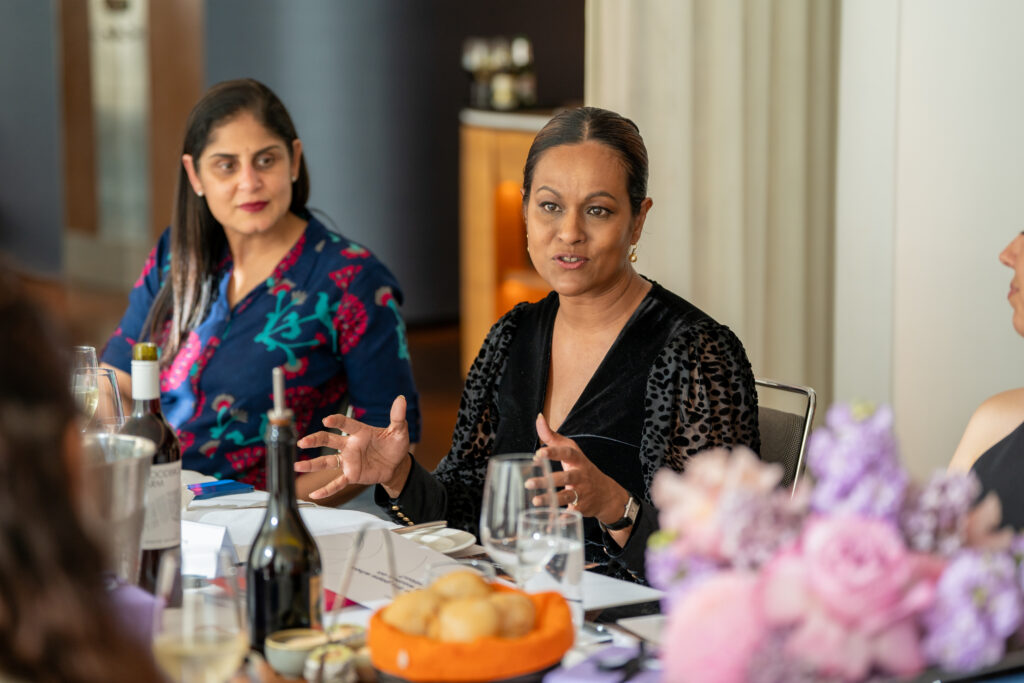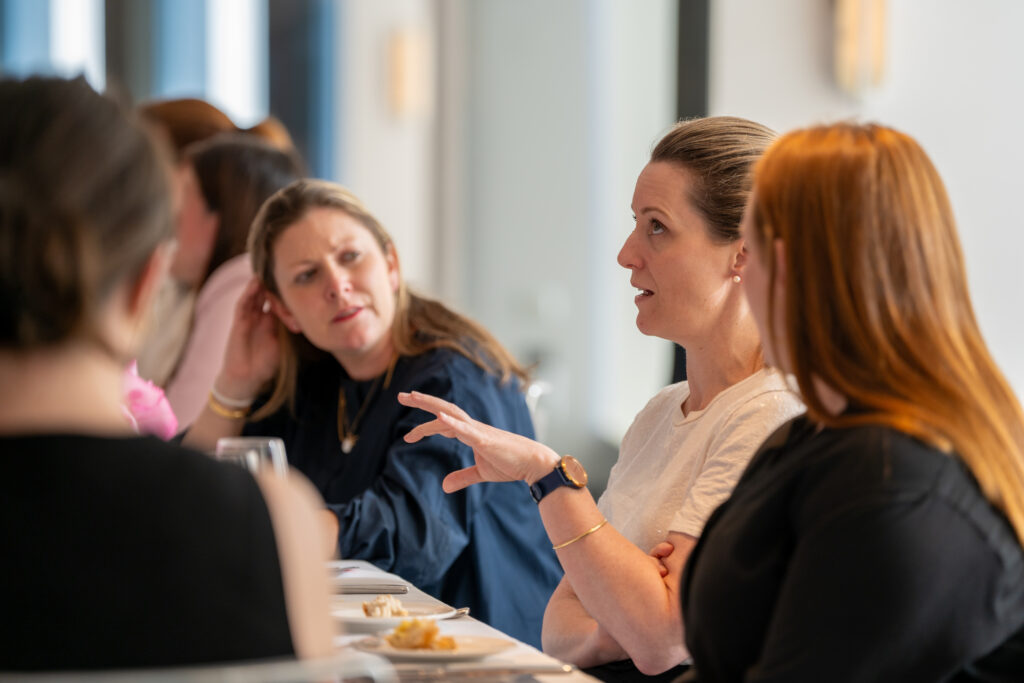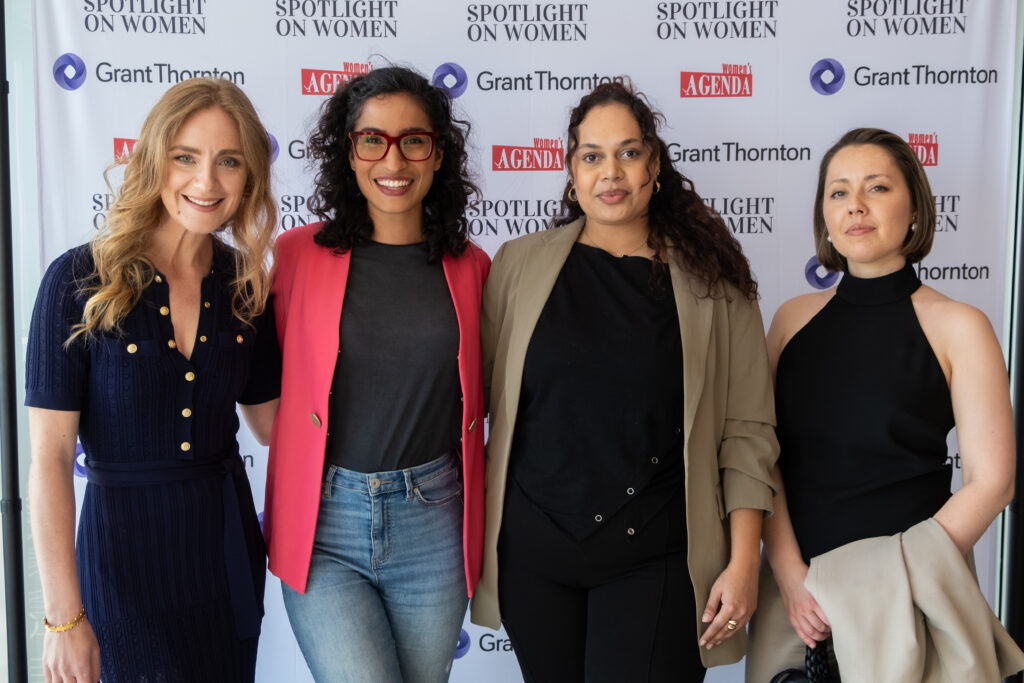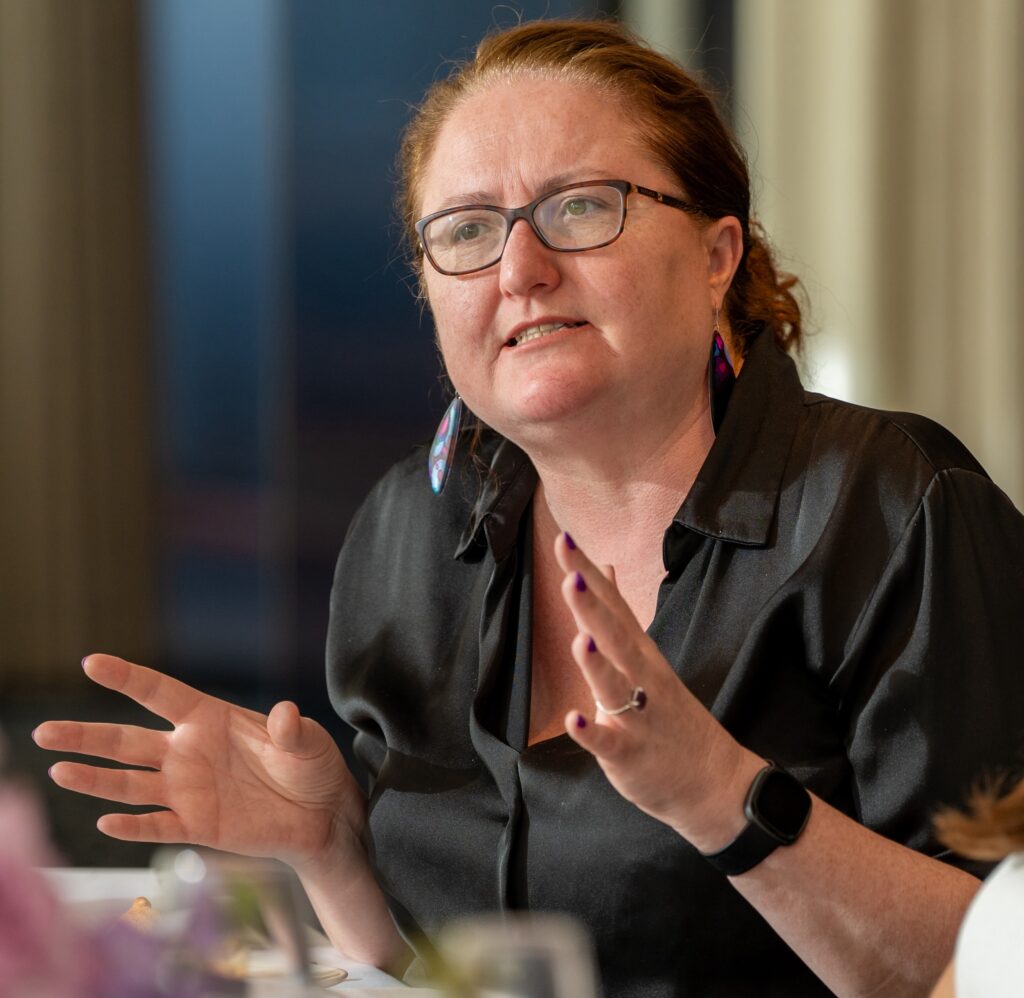Australia’s total superannuation assets were worth around $3.9 trillion at the end of the June 2024 quarter.
So, how much of that will support women’s retirement? And, how gender-equal will decision-making be regarding how such an asset is invested? Are policies enabling women to access their superannuation to purchase property the right approach?
We discussed these issues and much more at a recent roundtable of women working superannuation and advocates aiming to improve the system, in partnership with Grant Thornton Australia.
The goal of the discussion was to connect women working to address change for women’s economic security and to discuss the fact that women still retire with around 25 per cent less in superannuation than men, with gender disparities present across every age cohort, according to the ASFA research.
The discussion was also an opportunity for some passionate and dedicated women working in superannuation and related spaces to network and share ideas around the collective desire to improve financial outcomes for women and to ultimately close that gap in retirement savings.
Importantly, this was not a discussion about ‘fixing women’. Rather, we discussed fixing systems to create a more equitable future for women and girls.
As Himashini Weeraratne, head of financial services tax and partner at Grant Thornton, highlighted, these conversations are not just about “the numbers”.
“It’s about collectively creating a future where women are equally empowered to secure their financial futures,” she said.
Weeraratne also asked those participating to commit to an action that can help achieve this vision – with commitments ranging from implementing an education program within individual workforces to having more conversations with friends or mentoring younger women on the issue. There was also a collective pledge to unite and join forces on widespread change.
This roundtable followed our first with Grant Thornton in March 2024, exploring how to further promote careers and opportunities for women in superannuation.
“Your call to action for mentorship, education, and policy change is inspiring. Every small action counts, and continuing the conversation is vital for championing change,” said Weeraratne.
Below are some of the key themes discussed.

Fix systems, not women.
Better outcomes for women’s superannuation rely on achieving the systemic change needed to make superannuation work for women.
There has been some tinkering around the edges recently, including legislation passed this year that will see superannuation paid on government-funded Paid Parental Leave from 1 July 2025.
There have also been more efforts to raise awareness of the superannuation gender gap and to support financial literacy efforts across different groups.
But more is needed.
As Natalie Yan-Chatonsky, Founder & CEO of Full Time Lives says, “We can educate people on superannuation but that won’t change the fact that we fundamentally have a broken system in Australia.”
Financial adviser Jessica Brady believes more needs to be done to reflect the lives of women, suggesting “it was a system built by men, without women in mind”.
“From a First Nations’ perspective, we need so much change,” added Larisha Jerome, advocate and host of the Rich Blak Women podcast.
“We have to decolonise what superannuation means, especially in our community. When we think about superannuation, we think about the past, when there were policies of stolen wages that existed for many First Nation people. We need to address this past. That wasn’t long ago. That was my mother’s generation.”

More than a superannuation gender gap
While the superannuation gap between men and women is well documented in Australia – including some of the compounding contributors such as the gender pay gap, paid parental leave, unpaid work and stints of part time work, the situation is far more dire for some women.
“We must not forget that there is a whole cohort of women who actually have no superannuation at all. When we talk about the gap, we’re actually understating how big the problem is,” said Jo Kowalczyk, CEO of Women in Super.
“There is this assumption that women have a choice about how they’re earning and building super. But women often don’t have a choice because they don’t have any economic security. And economic security is freedom.”

Transformation needs data
Australia needs a far more comprehensive understanding of the gender and superannuation gaps in Australia if we’re going to achieve long-lasting and deep change, including intersectional analysis that highlights how outcomes differ.
Data more broadly will be key in informing our pathway forward and presenting solutions for the superannuation gap.
Chandel Rose from Ladies Talk Money noted how we’re crucially missing intersectional gender pay gap data in Australia, including what’s being accumulated in super. She highlighted a current campaign underway to bring intersectional gender pay gap data reporting to Australia.
“We’re talking about gaps and how they’re compounding over our lifetimes – but the truth is that in Australia, we just don’t know the true extent of the economic disparities that are out there because the data just doesn’t exist.”
Beyond home ownership
Home ownership is a dream for many women, but it is becoming increasingly unattainable for those not already in the market.
While further policy ideas and debate at the government level are necessary, it’s important to note that there are other investment opportunities available.
Some roundtable participants noted Australia’s culture of seeing home ownership as a symbol of success. Concerns were raised regarding just how out of reach this is for women who don’t yet own property, especially younger women and single women.
Morningstar Senior Investment Strategist Shani Jayamanne described the three lenses of home ownership to remember for women, including the fact it offers psychological safety, financial security, retirement, and the ability to build wealth.
Jane Macnamara, Head of Advocacy at Aware Super, noted how we just don’t have a system set up in Australia for people to rent securely long-term. “I don’t want women of my generation to rely on anyone else for the security of our future,” she said.

More conversations on super
Does superannuation need a rebrand?
It’s a point executive leadership coach Dr Lili Sussman raised, highlighting the opportunity to better connect younger people to their retirement self and to also see how such an investment can link to their values.
Superannuation continues to be discussed in very “financial ways,” noted Alison Sheridan, Audit Partner with Grant Thornton, sharing how there could be opportunities to make more of the opportunities to live better with a financially secure future.
“Financial wellbeing needs to be a pillar of general wellbeing,” said Jessica Brady.
End the shame
Stigma and shame associated with conversations about money routinely get in the way of women’s financial security.
“We need to stop using terms like ‘financial literacy’, when the opposite of that is actually ‘financial illiteracy’,” said Katrina McPhee, Group Exec – Comms & Advocacy and Chief of Staff at Aware Super.
Lili Sussman shared her experience of working with women when they find themselves with little to no superannuation in the later parts of their career – following divorce, separation or an unexpected life event.
“We need to have bigger, open conversations about money in general. We still have this social shame. We have women feeling shame because, due to the system around it, they end up in a place where they do have the financial security they need. We need to open avenues for them to have those conversations, to share those experiences and to be able to explore opportunities available to them to improve their outcomes,” she said.
Conversations about illness, disability and dementia, including Alzheimer’s are also necessary – with more attention on the issue raised in the media and elsewhere, especially with it now being the leading cause of death in women and the care more of us will need as we get older.

Education and social media
While social media brings up a number of challenges, especially when it comes to how we feel about our current situation and confidence levels, some on the roundtable agreed that it could be a valuable tool.
There are some excellent examples of women on social media, podcasts, and other forums who communicate powerfully, share accessible ideas about investing, and bring attention and excitement to the issue of superannuation.
“The greatest opportunity we have right now is social media and how we can use it to develop the confidence of the women who are coming through,” said Natalie Yan-Chatonsky.
Himashini Weeraratne believes that more generally, “education for girls at all levels is vital”.
Entrepreneur and advocate Mariam Mohammed warned against financial literacy programs that lack evidence of success.
“We don’t have enough evidence-based solutions in Australia for financial literacy among young people. We have plenty of band-aid solutions that at best maintain the status quo, but at worst actually make the problem more dire.”
Advice to younger women
A number of roundtable participants shared their advice with younger women.
The general theme was clear: start putting money away early, regardless of how much or how little you have.
“Save 20 percent of your income and invest it,” Dr Lili Sussman said.
“Set a goal to stretch a little bit over time in terms of how much you can put away over each pay period,” Financial Services partner with Grant Thornton, Claire Scott, said.
“Remember, it’s not about where you invest, it’s about putting money aside each period and making that a habit. That will develop a discipline, and if you develop that early, that will continue throughout your life,” said Anne Coyne.
“Just start investing now. It doesn’t matter how little you’re earning. Just do it now,” said Katrina McPhee.
“It’s never too early to start saving. Don’t compromise on what you deserve. It’s OK to take some risks,” said Tari Makanda, Financial Services partner with Grant Thorton.
“Don’t buy into the concept of credit cards,” said Jo Fleming, General Manager, Risk – Superannuation at Insignia Financial. “This is advice my father gave me early and I’ve lived by it. Never spend money on a credit card that you can’t pay for today. He also told me to put money away for retirement!”
Asked about advice to their current generation, there was a wide range of responses, but a shared desire to check in with others, to start conversations about superannuation and money and to stay positive on the future.
“We have to stay optimistic,” said Mary Flanagan from Grant Thornton. “It’s understandable that you can feel squashed with so much going on when you consider how much change needs to be made, but we can stay optimistic. We can all help highlight what we’re collectively trying to achieve here.”
This roundtable discussion on superannuation was made possible thanks to support from Grant Thornton and was the second in our series on women in superannuation, aiming to connect women in the industry over discussions on the super system for everyone. Read more from the first roundtable here.

